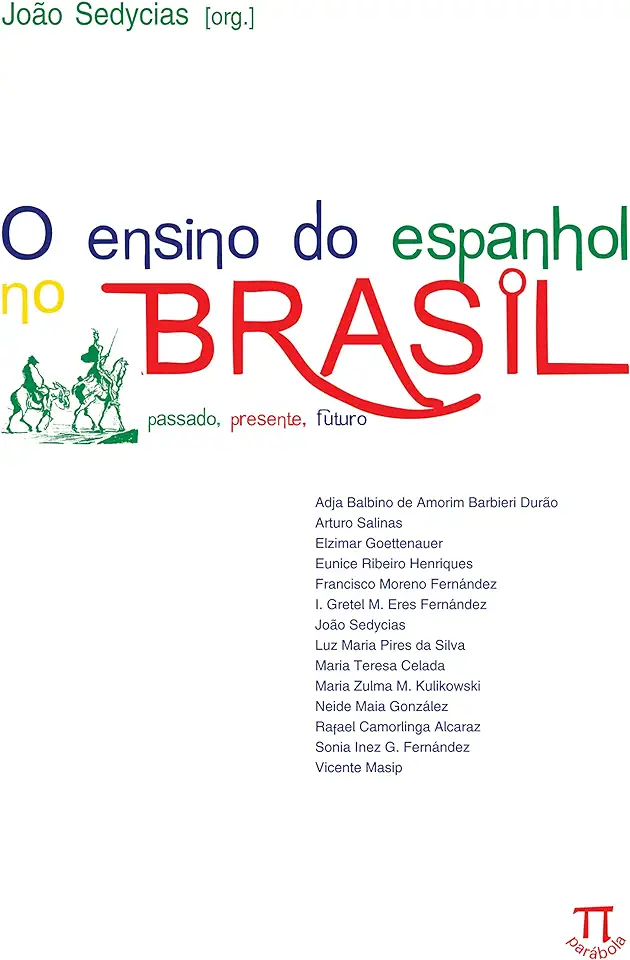
The Teaching of Spanish in Brazil - João Sedycias
The Teaching of Spanish in Brazil: A Comprehensive Guide
Introduction
In today's globalized world, the ability to communicate in multiple languages is becoming increasingly important. Spanish, in particular, is a valuable language to learn, as it is spoken by over 500 million people worldwide and is the official language of 20 countries.
Brazil, as the largest country in South America, has a significant Spanish-speaking population, and there is a growing demand for Spanish language education in the country. However, the teaching of Spanish in Brazil faces a number of challenges, including a lack of qualified teachers, inadequate resources, and a lack of awareness of the importance of Spanish language learning.
The Importance of Learning Spanish in Brazil
There are many reasons why learning Spanish is important for Brazilians. First and foremost, Spanish is the most widely spoken language in Latin America, and Brazil is surrounded by Spanish-speaking countries. This means that Brazilians who can speak Spanish have a significant advantage in terms of communication and business opportunities in the region.
In addition, Spanish is a global language, and it is becoming increasingly important in the international business world. Many multinational companies have operations in Spanish-speaking countries, and they often require employees who can speak Spanish. Brazilians who can speak Spanish are therefore more likely to be successful in the global job market.
Finally, learning Spanish can also be a great way to enrich one's cultural experience. Spanish is a beautiful and expressive language, and it is the language of some of the world's most famous literature, music, and art. Brazilians who can speak Spanish can enjoy these cultural treasures in their original language and gain a deeper understanding of Hispanic culture.
Challenges to Teaching Spanish in Brazil
Despite the importance of Spanish language learning in Brazil, there are a number of challenges that need to be addressed in order to improve the teaching of Spanish in the country.
One of the biggest challenges is the lack of qualified Spanish teachers. Many Brazilian teachers of Spanish are not native speakers, and they may not have the necessary skills and knowledge to teach the language effectively. This can lead to students developing incorrect pronunciation, grammar, and vocabulary.
Another challenge is the lack of adequate resources for teaching Spanish. Many Brazilian schools do not have access to the necessary textbooks, audio materials, and other resources that are essential for effective language learning. This can make it difficult for students to learn Spanish in a structured and comprehensive way.
Finally, there is a lack of awareness of the importance of Spanish language learning in Brazil. Many Brazilians do not realize the benefits of learning Spanish, and they may not be motivated to learn the language. This can make it difficult to attract students to Spanish language classes and to create a sustainable demand for Spanish language education.
Recommendations for Improving the Teaching of Spanish in Brazil
In order to improve the teaching of Spanish in Brazil, a number of recommendations can be made.
First, it is essential to increase the number of qualified Spanish teachers in the country. This can be done by providing scholarships and other financial incentives to encourage Brazilians to study Spanish and by offering training programs for existing Spanish teachers.
Second, it is important to provide more resources for teaching Spanish in Brazil. This includes providing schools with access to textbooks, audio materials, and other resources that are essential for effective language learning.
Third, it is important to raise awareness of the importance of Spanish language learning in Brazil. This can be done through public awareness campaigns, media coverage, and educational programs.
By implementing these recommendations, Brazil can improve the teaching of Spanish in the country and provide its citizens with the skills they need to succeed in the global economy and to enjoy the cultural riches of the Spanish-speaking world.
Conclusion
The teaching of Spanish in Brazil is a complex and challenging issue, but it is also an important one. By addressing the challenges that exist and implementing the recommendations that have been made, Brazil can improve the teaching of Spanish in the country and provide its citizens with the skills they need to succeed in the global economy and to enjoy the cultural riches of the Spanish-speaking world.